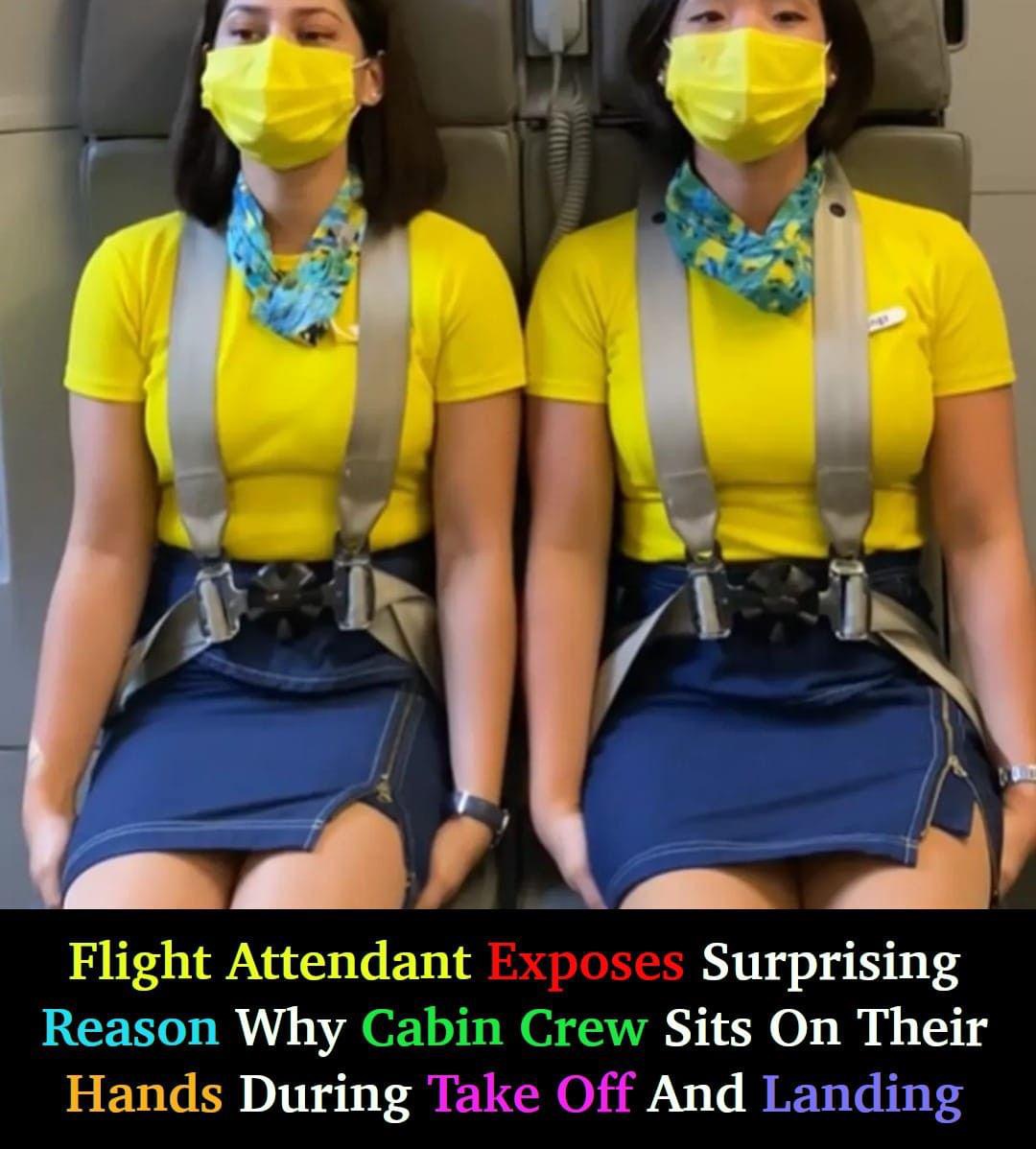Flight attendants have a much larger role in air travel than simply providing beverages and ensuring passengers’ comfort. They are qualified personnel tasked with guaranteeing the safety and well-being of everyone on board. One seemingly unusual behavior sticks out amid the myriad processes and rules they follow: the cabin crew’s bracing position during takeoff and landing.
The Bracing Position Explained by a flight attendant
When customers see flight attendants buckle up in their jump seats and sit on their hands during landings, they often become curious and speculate. However, Henny Lim, a Cebu Pacific flight attendant, explains in a popular TikTok video. There is a strategy to this seemingly strange pose.
Lim explains that the bracing position requires a series of particular activities. Fasten seatbelts firmly, sit upright, place hands on thighs with thumbs tucked, and keep arms free. Finally, ensure your feet are flat on the floor.
Purpose of the Bracing Position

The fundamental goal of the bracing stance is to reduce physical movement during potential emergencies. This reduces the danger of harm from an impact. Flight attendants can better withstand the forces exerted during a crash landing if they adopt a tight stance and secure themselves in their seats.
During this period, flight attendants engage in what Lim calls a “silent review. ” Mentally preparing themselves for emergency scenarios by familiarizing themselves with emergency equipment, door operations, commands, and observing visual cues outside the aircraft.
Perspectives from Regulatory Authorities
Regulatory agencies such as the Federal Aviation Administration emphasize the necessity of the bracing posture. According to an FAA memo, the bracing position has two key purposes: limiting flapping and minimizing secondary impact. Flailing, or uncontrolled movement of the limbs, can result in additional injuries following an accident.

Leave a Reply